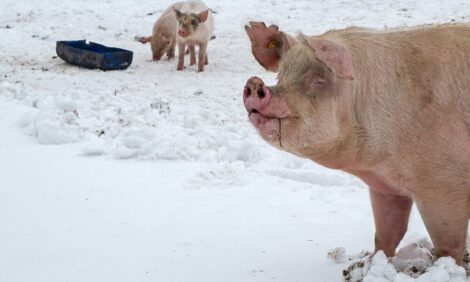



Thailand's journey to be responsible antimicrobial users
Antimicrobial resistance (AMR) is a term we are hearing more and more, and it poses a significant threat to your lifeMost of us may be familiar with antibiotic resistance which occurs when bacteria become resistant to antibiotics, causing the drugs to be less effective. Antimicrobial resistance, however, includes the resistance of viruses, bacteria and other microorganisms.
The resistance, caused by misuse of antimicrobials in both humans and animals, may lead to the end of modern medicine. If nothing is changed, the antimicrobials that we use today will be obsolete and will be less therapeutically effective, which may later result in minor bacterial infections that lead to fatalities. Globally, resistance kills approximately 700,000 people a year. Many international organisations share the same view that the amount of deaths could go up to 10 million, costing 100 trillion USD annually by 2050.
The growing number of antimicrobial resistance incidents have become hot topics with health professionals, including veterinarians, all over the world.

“[The] situation regarding AMR is referred to as a snowball effect which [means] it will get bigger and bigger unless we do something now,” noted Dr Jaana Husu-Kallio, permanent secretary of agriculture and forestry of Finland.
Dr Husu-Kallio was visiting Charoen Pokphand Foods (CPF)’s swine farm with 40 specialists who attended the Prince Mahidol Awards Conference 2018 in Bangkok. During the visit, she was impressed by the Thai animal welfare system and CPF’s attitude towards decreasing antibiotics usage, such as banning the use of antibiotic growth promoters and colistin.

She also praised the company’s pilot program for using group pen gestation systems in swine farms.
In Thailand, the Ministry of Public Health reported that 38,000 people die from antimicrobial resistance annually and also cost the country billions of dollar per year. The Thai government recognised the importance of this issue. As a consequence, the Thai National Strategic Plan on Antimicrobial Resistance (2017–2021) has been set up by the Thai Working Group on Health Policy and Systems Research on Antimicrobial Resistance, a network comprised of multisectorial researchers to reduce the resistance by half and drop antimicrobial use in humans and animals by 20% and 30% respectively.
The strategic plan is initiated based on the One Health approach which recognises that the health of humans, animals and the environment are related to each other and cannot be taken separately any longer.
The livestock industry has put a lot of effort into ensuring the responsible use of antimicrobials in animals raised for consumption. The Department of Livestock Development works together with related parties including the Veterinary Council of Thailand and private sectors to set up plans and policies that match up with international standards such as the banning of antimicrobial growth promoters used in poultry which has been in effect since 2006.
The department initiated Livestock OK, a standard that traces meat quality throughout the production chain to assure that only fresh, hygienic and contamination-free meats will be delivered to consumers.
Mr Boonkwan Wongyunoi, a representative of the Thai Poultry Veterinary Association, said that since the government banned antibiotic growth promoters in animal feed and livestock products have been closely monitored by the Department (DLD) in an attempt to reach the global standard.
“The Thai poultry business, as one of the world-leading exporters, and other top livestock producers have been working hard to reduce antimicrobial use and make sure that their approaches to using any of the agents are aligned with the law and international practices,” indicated Mr Boonkwan Wongyunoi.

Dr Damnoen Chaturavittawong (DVM), senior vice president of the Swine Veterinary Service Department at CPF, said the company has been spearheading food safety improvement in Thailand. It has initiated the program to minimise antimicrobial use in farm animals since 2000.
“Antimicrobials that are used for animals only are CPF’s top priorities for animal treatment while shared class antimicrobials will be used only under strict veterinary supervision to avoid antimicrobial resistance in humans. Additionally, the company bans the use of antibiotic growth promoter and Colistin, in its farm,” Dr. Damnoen added.
In response to global concerns on antimicrobial resistance, CPF has announced the Global Vision for Antimicrobials Use Stewardship in Food Animals responsible use practices, implemented by all CPF units in Thailand and the rest of the world since last year.
Additionally, good animal welfare practices are implemented in all of the company’s farms as a means of keeping animals healthy and to prevent diseases which will further minimise the need for antimicrobial use.
As reported by Charoen Pokphand Foods






